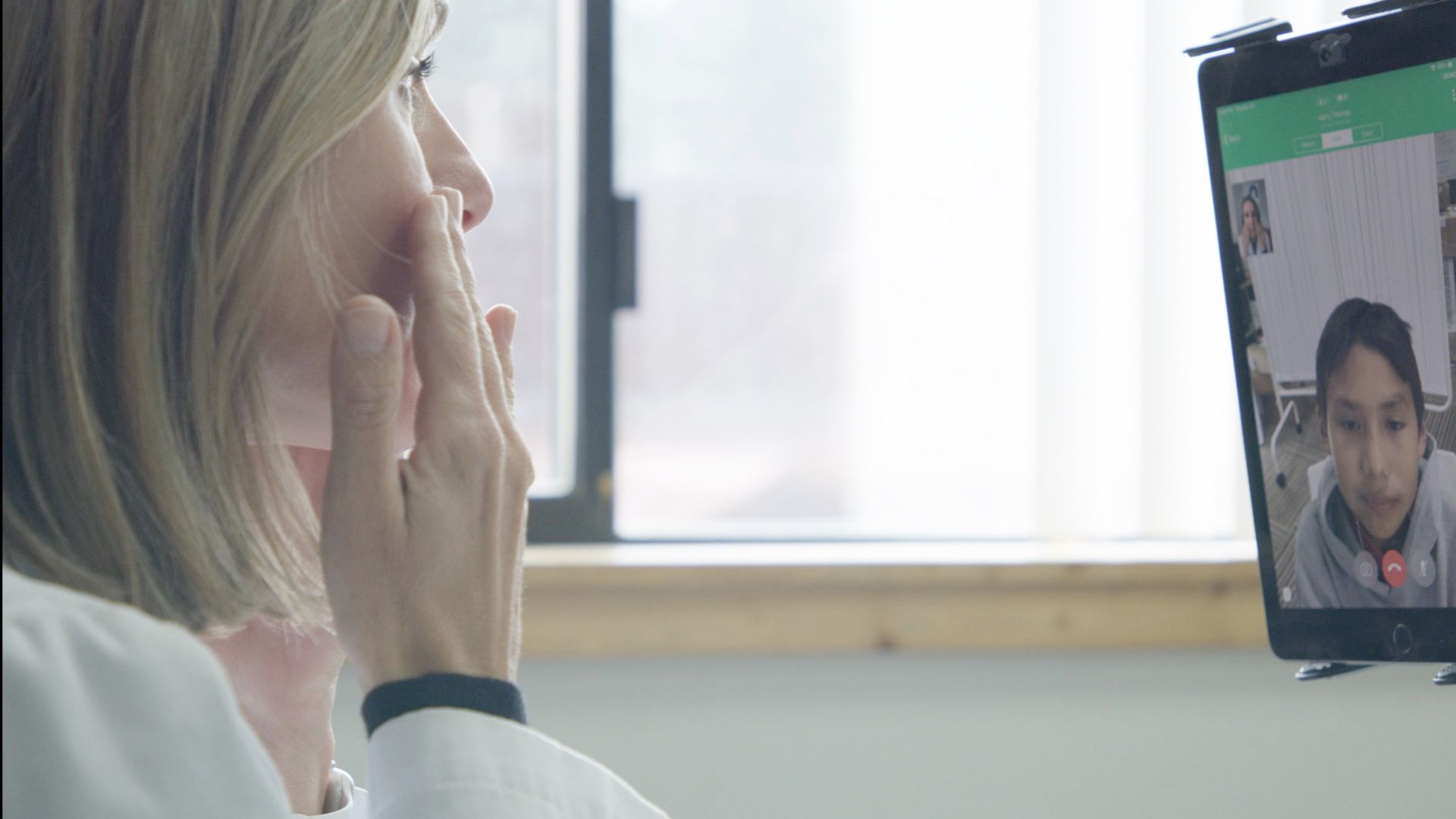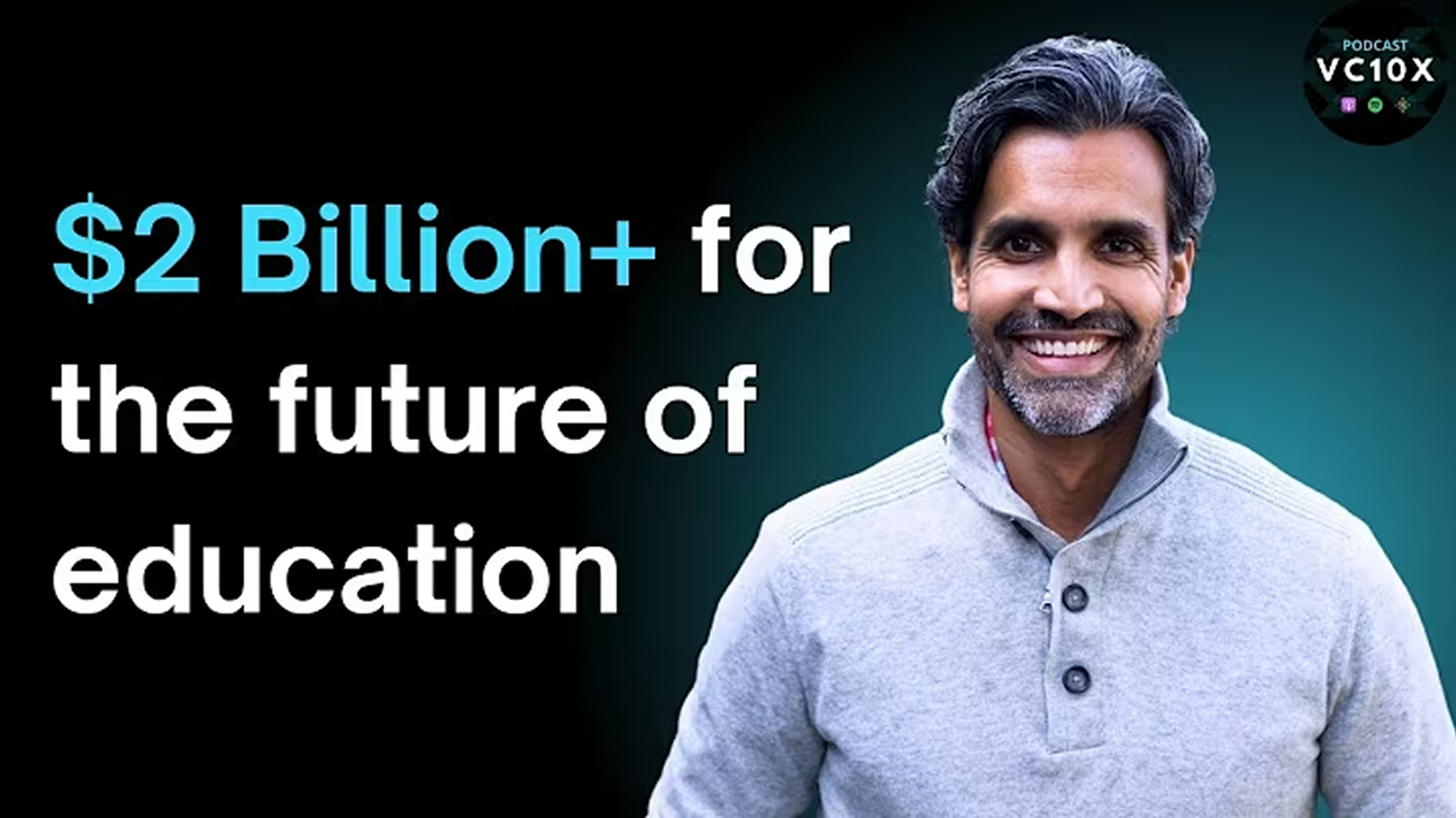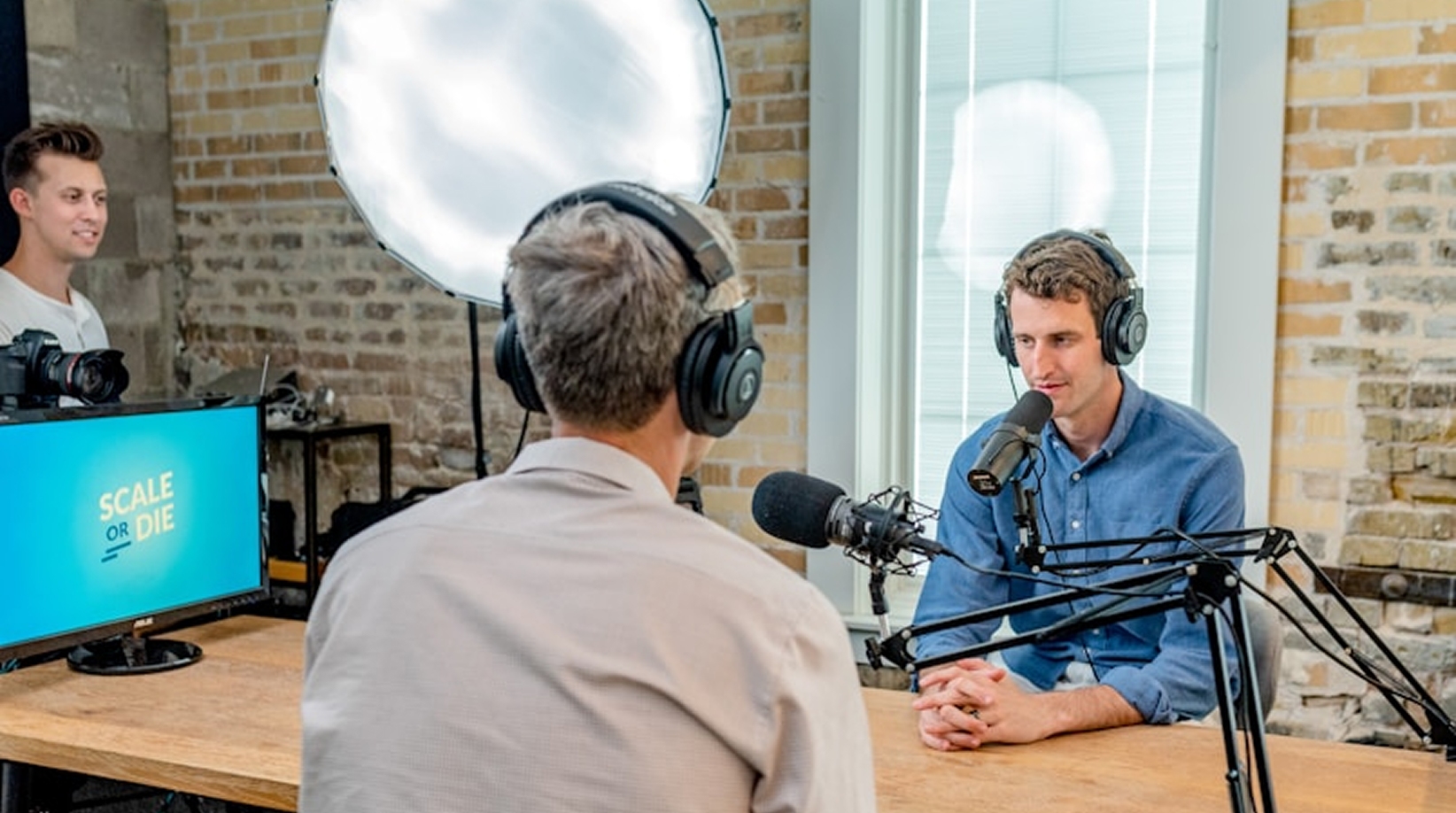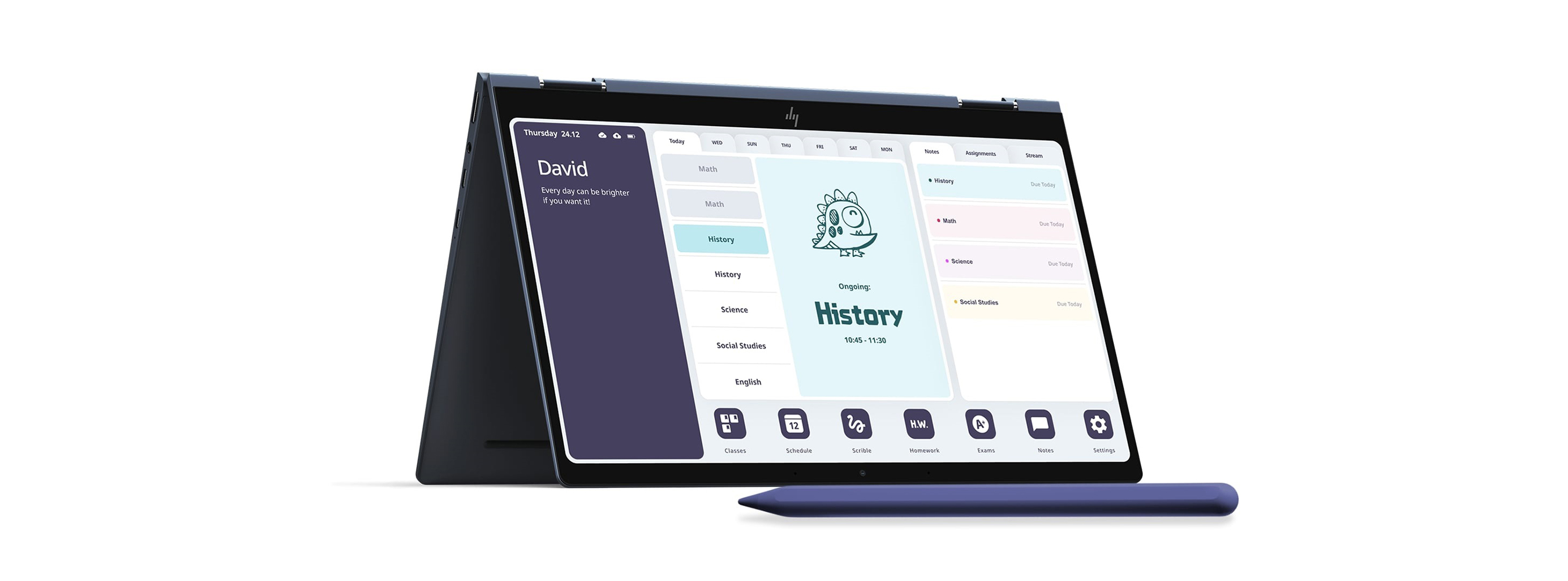Josh Golomb: A Pioneer in Healthcare for School Children on Transitioning to Telemedicine
Josh Golomb: A Pioneer in Healthcare for School Children on Transitioning to Telemedicine
Josh Golomb is CEO of Hazel Health, a healthcare company offering all children access to healthcare through in-school virtual medical clinics (and partnering with schools and families affected by COVID-19 for new telemedicine offerings). Hazel partners with dozens of schools to improve student health and decrease absenteeism by providing students with instant access to a network of doctors for a speedy diagnosis and care plan. Golomb is an experienced senior executive, having co-founded new healthcare enterprises and presided over several large organizations, including Paladina Health, DavitaRx, and more, fostering tremendous growth. As former CEO of direct primary care startup Paladina Health (acquired by NEA), he has proven success in developing forward-thinking healthcare organizations while delivering exceptional clinical and financial results.
What are your biggest business concerns surrounding COVID-19?
As a company that provides healthcare to K-12 students, we have been focused on making sure families that rely on Hazel to care for their children can still access our services. We have developed a service that families can use to access a doctor from the comfort of home. Many families don’t have primary care providers, and the first place they go when children need to see a doctor is the ER. With schools closing due to COVID-19, and the need for hospitals to reserve resources for those in critical condition, it’s more important than ever to ensure that families in underserved communities have access to care and information.
What is your current business strategy for dealing with the situation?
Hazel was founded to expand access to healthcare for all children, by providing it in a trusted setting—in school. To date, Hazel has always operated within schools, during the school day. School nurses would open the Hazel app within their health office to help any student have an on-demand doctor visit.
As schools close, we’ve seen a number of requests to continue providing our services, and we’re answering the call by expanding access for families, waiving certain fees for schools, and providing free access to resources on our site.
How do you think things will look in your industry a year from now?
The past month has been a time of great change and opportunity for telehealth. As support for the use of telehealth has grown, these platforms have seen a tremendous spike. We’re seeing an increased need for doctors, nurses, physician assistants—to help with the demand, and there will need to be more training to ensure that healthcare workers are equipped to see patients digitally. Until now, adoption of telehealth within the home has been slow for a number of reasons, but with so many people being encouraged to use telehealth services during the pandemic, we expect to see increased usage and engagement for years to come as a result of the exposure that is happening today. Many telehealth companies have been seeing 3-4x the demand they saw for visits before the pandemic.
What have you learned from other difficult times in the past?
It’s most important for us right now to stick to our core mission of providing all children with healthcare. In such unique circumstances, our work is more important than ever, and we’re collaborating as a team to expand our services and meet the needs of the families we serve. Our biggest challenge now is expanding Hazel to new markets to ensure all families have access to care as schools make plans to re-open, while at the same time shifting our core focus to our new Hazel at Home model.
Josh Golomb is CEO of Hazel Health, a healthcare company offering all children access to healthcare through in-school virtual medical clinics (and partnering with schools and families affected by COVID-19 for new telemedicine offerings). Hazel partners with dozens of schools to improve student health and decrease absenteeism by providing students with instant access to a network of doctors for a speedy diagnosis and care plan. Golomb is an experienced senior executive, having co-founded new healthcare enterprises and presided over several large organizations, including Paladina Health, DavitaRx, and more, fostering tremendous growth. As former CEO of direct primary care startup Paladina Health (acquired by NEA), he has proven success in developing forward-thinking healthcare organizations while delivering exceptional clinical and financial results.
What are your biggest business concerns surrounding COVID-19?
As a company that provides healthcare to K-12 students, we have been focused on making sure families that rely on Hazel to care for their children can still access our services. We have developed a service that families can use to access a doctor from the comfort of home. Many families don’t have primary care providers, and the first place they go when children need to see a doctor is the ER. With schools closing due to COVID-19, and the need for hospitals to reserve resources for those in critical condition, it’s more important than ever to ensure that families in underserved communities have access to care and information.
What is your current business strategy for dealing with the situation?
Hazel was founded to expand access to healthcare for all children, by providing it in a trusted setting—in school. To date, Hazel has always operated within schools, during the school day. School nurses would open the Hazel app within their health office to help any student have an on-demand doctor visit.
As schools close, we’ve seen a number of requests to continue providing our services, and we’re answering the call by expanding access for families, waiving certain fees for schools, and providing free access to resources on our site.
How do you think things will look in your industry a year from now?
The past month has been a time of great change and opportunity for telehealth. As support for the use of telehealth has grown, these platforms have seen a tremendous spike. We’re seeing an increased need for doctors, nurses, physician assistants—to help with the demand, and there will need to be more training to ensure that healthcare workers are equipped to see patients digitally. Until now, adoption of telehealth within the home has been slow for a number of reasons, but with so many people being encouraged to use telehealth services during the pandemic, we expect to see increased usage and engagement for years to come as a result of the exposure that is happening today. Many telehealth companies have been seeing 3-4x the demand they saw for visits before the pandemic.
What have you learned from other difficult times in the past?
It’s most important for us right now to stick to our core mission of providing all children with healthcare. In such unique circumstances, our work is more important than ever, and we’re collaborating as a team to expand our services and meet the needs of the families we serve. Our biggest challenge now is expanding Hazel to new markets to ensure all families have access to care as schools make plans to re-open, while at the same time shifting our core focus to our new Hazel at Home model.
Josh Golomb is CEO of Hazel Health, a healthcare company offering all children access to healthcare through in-school virtual medical clinics (and partnering with schools and families affected by COVID-19 for new telemedicine offerings). Hazel partners with dozens of schools to improve student health and decrease absenteeism by providing students with instant access to a network of doctors for a speedy diagnosis and care plan. Golomb is an experienced senior executive, having co-founded new healthcare enterprises and presided over several large organizations, including Paladina Health, DavitaRx, and more, fostering tremendous growth. As former CEO of direct primary care startup Paladina Health (acquired by NEA), he has proven success in developing forward-thinking healthcare organizations while delivering exceptional clinical and financial results.
What are your biggest business concerns surrounding COVID-19?
As a company that provides healthcare to K-12 students, we have been focused on making sure families that rely on Hazel to care for their children can still access our services. We have developed a service that families can use to access a doctor from the comfort of home. Many families don’t have primary care providers, and the first place they go when children need to see a doctor is the ER. With schools closing due to COVID-19, and the need for hospitals to reserve resources for those in critical condition, it’s more important than ever to ensure that families in underserved communities have access to care and information.
What is your current business strategy for dealing with the situation?
Hazel was founded to expand access to healthcare for all children, by providing it in a trusted setting—in school. To date, Hazel has always operated within schools, during the school day. School nurses would open the Hazel app within their health office to help any student have an on-demand doctor visit.
As schools close, we’ve seen a number of requests to continue providing our services, and we’re answering the call by expanding access for families, waiving certain fees for schools, and providing free access to resources on our site.
How do you think things will look in your industry a year from now?
The past month has been a time of great change and opportunity for telehealth. As support for the use of telehealth has grown, these platforms have seen a tremendous spike. We’re seeing an increased need for doctors, nurses, physician assistants—to help with the demand, and there will need to be more training to ensure that healthcare workers are equipped to see patients digitally. Until now, adoption of telehealth within the home has been slow for a number of reasons, but with so many people being encouraged to use telehealth services during the pandemic, we expect to see increased usage and engagement for years to come as a result of the exposure that is happening today. Many telehealth companies have been seeing 3-4x the demand they saw for visits before the pandemic.
What have you learned from other difficult times in the past?
It’s most important for us right now to stick to our core mission of providing all children with healthcare. In such unique circumstances, our work is more important than ever, and we’re collaborating as a team to expand our services and meet the needs of the families we serve. Our biggest challenge now is expanding Hazel to new markets to ensure all families have access to care as schools make plans to re-open, while at the same time shifting our core focus to our new Hazel at Home model.
Josh Golomb is CEO of Hazel Health, a healthcare company offering all children access to healthcare through in-school virtual medical clinics (and partnering with schools and families affected by COVID-19 for new telemedicine offerings). Hazel partners with dozens of schools to improve student health and decrease absenteeism by providing students with instant access to a network of doctors for a speedy diagnosis and care plan. Golomb is an experienced senior executive, having co-founded new healthcare enterprises and presided over several large organizations, including Paladina Health, DavitaRx, and more, fostering tremendous growth. As former CEO of direct primary care startup Paladina Health (acquired by NEA), he has proven success in developing forward-thinking healthcare organizations while delivering exceptional clinical and financial results.
What are your biggest business concerns surrounding COVID-19?
As a company that provides healthcare to K-12 students, we have been focused on making sure families that rely on Hazel to care for their children can still access our services. We have developed a service that families can use to access a doctor from the comfort of home. Many families don’t have primary care providers, and the first place they go when children need to see a doctor is the ER. With schools closing due to COVID-19, and the need for hospitals to reserve resources for those in critical condition, it’s more important than ever to ensure that families in underserved communities have access to care and information.
What is your current business strategy for dealing with the situation?
Hazel was founded to expand access to healthcare for all children, by providing it in a trusted setting—in school. To date, Hazel has always operated within schools, during the school day. School nurses would open the Hazel app within their health office to help any student have an on-demand doctor visit.
As schools close, we’ve seen a number of requests to continue providing our services, and we’re answering the call by expanding access for families, waiving certain fees for schools, and providing free access to resources on our site.
How do you think things will look in your industry a year from now?
The past month has been a time of great change and opportunity for telehealth. As support for the use of telehealth has grown, these platforms have seen a tremendous spike. We’re seeing an increased need for doctors, nurses, physician assistants—to help with the demand, and there will need to be more training to ensure that healthcare workers are equipped to see patients digitally. Until now, adoption of telehealth within the home has been slow for a number of reasons, but with so many people being encouraged to use telehealth services during the pandemic, we expect to see increased usage and engagement for years to come as a result of the exposure that is happening today. Many telehealth companies have been seeing 3-4x the demand they saw for visits before the pandemic.
What have you learned from other difficult times in the past?
It’s most important for us right now to stick to our core mission of providing all children with healthcare. In such unique circumstances, our work is more important than ever, and we’re collaborating as a team to expand our services and meet the needs of the families we serve. Our biggest challenge now is expanding Hazel to new markets to ensure all families have access to care as schools make plans to re-open, while at the same time shifting our core focus to our new Hazel at Home model.
Josh Golomb is CEO of Hazel Health, a healthcare company offering all children access to healthcare through in-school virtual medical clinics (and partnering with schools and families affected by COVID-19 for new telemedicine offerings). Hazel partners with dozens of schools to improve student health and decrease absenteeism by providing students with instant access to a network of doctors for a speedy diagnosis and care plan. Golomb is an experienced senior executive, having co-founded new healthcare enterprises and presided over several large organizations, including Paladina Health, DavitaRx, and more, fostering tremendous growth. As former CEO of direct primary care startup Paladina Health (acquired by NEA), he has proven success in developing forward-thinking healthcare organizations while delivering exceptional clinical and financial results.
What are your biggest business concerns surrounding COVID-19?
As a company that provides healthcare to K-12 students, we have been focused on making sure families that rely on Hazel to care for their children can still access our services. We have developed a service that families can use to access a doctor from the comfort of home. Many families don’t have primary care providers, and the first place they go when children need to see a doctor is the ER. With schools closing due to COVID-19, and the need for hospitals to reserve resources for those in critical condition, it’s more important than ever to ensure that families in underserved communities have access to care and information.
What is your current business strategy for dealing with the situation?
Hazel was founded to expand access to healthcare for all children, by providing it in a trusted setting—in school. To date, Hazel has always operated within schools, during the school day. School nurses would open the Hazel app within their health office to help any student have an on-demand doctor visit.
As schools close, we’ve seen a number of requests to continue providing our services, and we’re answering the call by expanding access for families, waiving certain fees for schools, and providing free access to resources on our site.
How do you think things will look in your industry a year from now?
The past month has been a time of great change and opportunity for telehealth. As support for the use of telehealth has grown, these platforms have seen a tremendous spike. We’re seeing an increased need for doctors, nurses, physician assistants—to help with the demand, and there will need to be more training to ensure that healthcare workers are equipped to see patients digitally. Until now, adoption of telehealth within the home has been slow for a number of reasons, but with so many people being encouraged to use telehealth services during the pandemic, we expect to see increased usage and engagement for years to come as a result of the exposure that is happening today. Many telehealth companies have been seeing 3-4x the demand they saw for visits before the pandemic.
What have you learned from other difficult times in the past?
It’s most important for us right now to stick to our core mission of providing all children with healthcare. In such unique circumstances, our work is more important than ever, and we’re collaborating as a team to expand our services and meet the needs of the families we serve. Our biggest challenge now is expanding Hazel to new markets to ensure all families have access to care as schools make plans to re-open, while at the same time shifting our core focus to our new Hazel at Home model.


.svg)








.jpg)




.png)





